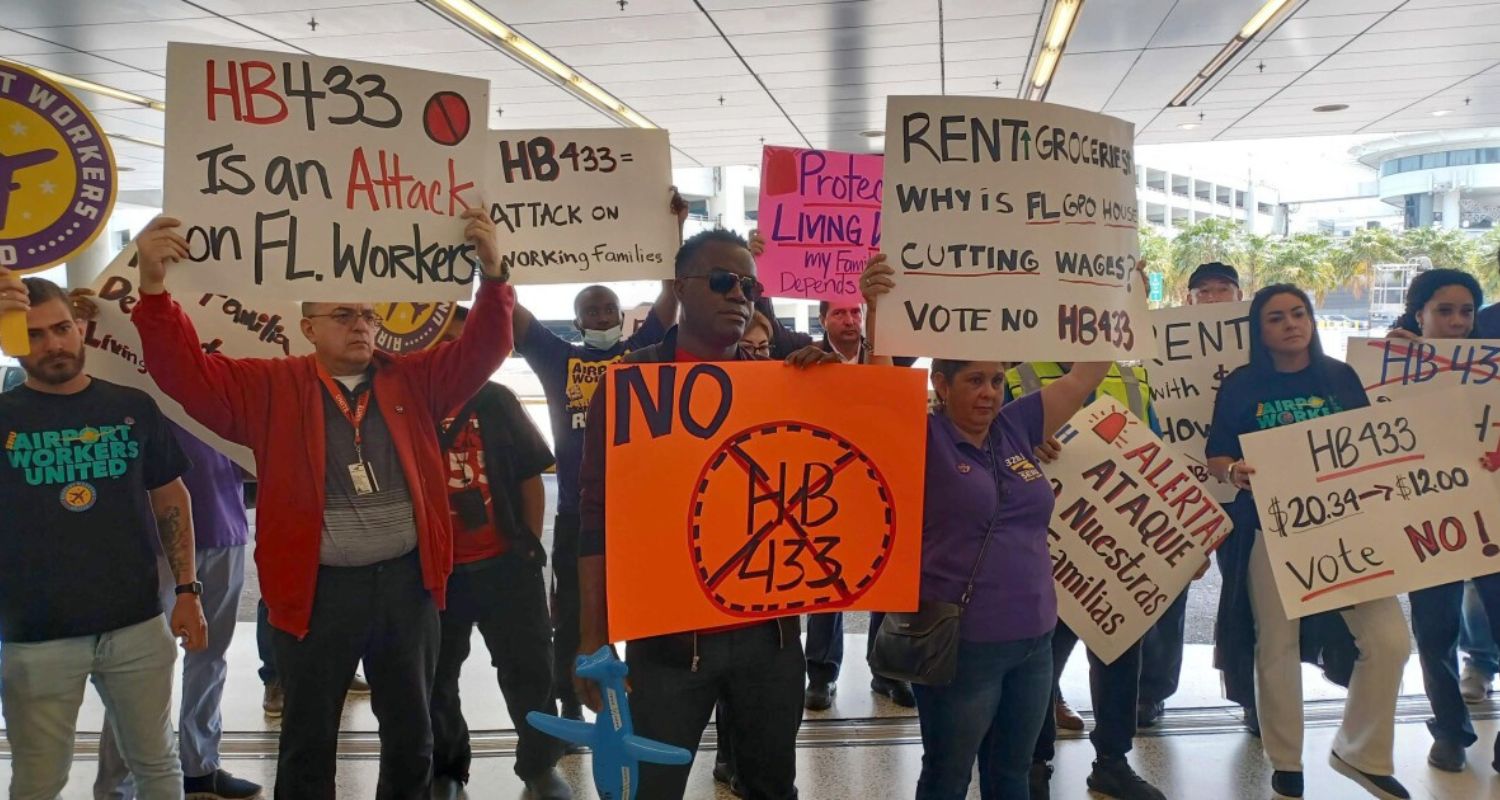In a decisive move, Florida becomes the second state to halt local government mandates requiring heat protection for outdoor labourers as Republican Governor Ron DeSantis officially signs House Bill 433.
Effective July 1, the bill sets forth various constraints for city and county administrations, curtailing their authority to enforce additional heat exposure standards beyond those mandated by state or federal laws.
Representative Tiffany Esposito of Fort Myers, a staunch advocate of the bill, emphasised its human-centred approach, citing her husband’s two-decade tenure in South Florida’s construction industry. She underscored the pivotal role of robust job opportunities in fostering Floridians’ well-being and emphasised the need to sustain businesses to promote overall health and prosperity.
With approximately two million Floridians engaged in outdoor vocations spanning construction to agriculture, the scorching summer temperatures often surpassing 95 degrees, coupled with intense humidity, underscore the urgency of ensuring worker safety.
HB 433, also known as the Employment Regulations Bill, seeks to curb local government overreach by prohibiting them from imposing distinct minimum wage standards or favouring businesses based on employment benefits. It specifically targets regulations pertaining to heat exposure, preventing municipalities from imposing additional requirements on employers beyond existing federal or state statutes.
While acknowledging the need for heat-related safeguards, the bill asserts that the Occupational Safety and Health Administration (OSHA) has already established comprehensive guidelines over the years. It criticises localised mandates, arguing that they undermine individual accountability and overly burden employers with punitive measures.
The legislation’s statewide impact is profound, rendering local heat protection measures null and void across all 67 counties. Notably, Miami-Dade County’s efforts to mandate shade breaks for outdoor workers every two hours faced abrupt termination following the bill’s enactment, much to the chagrin of local commissioners.
Governor DeSantis defended the bill, addressing concerns raised primarily by Miami-Dade County and suggesting it could create undue complications. Critics, including Luigi Guadarrama, the political director of Sierra Club Florida, lambasted the legislation, accusing DeSantis of neglecting the welfare of millions of Floridians in favour of corporate interests.
Despite Florida’s vulnerability to heat-related illnesses, as evidenced by a significant rise in heat-related deaths, the state lacks comprehensive statewide protections. The bill’s passage reinforces reliance on OSHA’s guidelines, leaving local governments powerless to enact additional safeguards.
The move by Florida mirrors Texas’ decision last year to strip city and county governments of authority to enforce heat protections for outdoor workers, signalling a broader trend towards centralised regulation.
While only five states currently boast statewide heat protections, the urgency of safeguarding outdoor labourers from extreme heat remains a pressing concern, particularly in states like Arizona and Florida, where rising temperatures exacerbate the risks.

